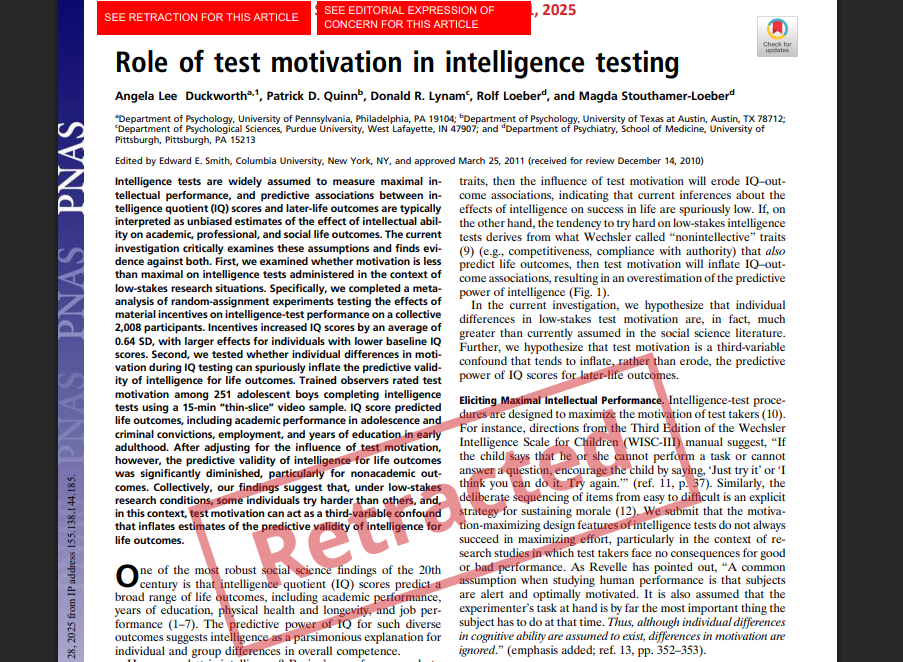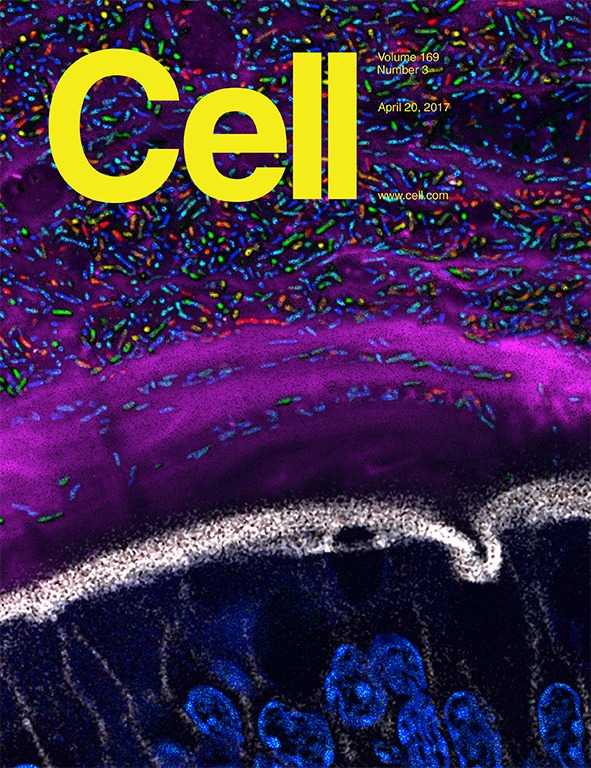The authors of a paper on how motivation influences intelligence test scores have retracted their paper following the retraction of a 50-year-old study included in their analysis.
Part meta-analysis and part longitudinal study, “Role of test motivation in intelligence testing” appeared in Proceedings of the National Academy of Sciences in 2011. The meta-analysis portion included a 1978 paper by Stephen Breuning, a child psychologist who was the subject of 1987 report from the National Institute of Mental Health that found he “knowingly, willfully, and repeatedly” engaged in research misconduct and fabricated results in 10 NIMH funded articles.
As we reported earlier this year, six of Breuning’s papers have been retracted, including one last December. That article, published in 1978 in the Journal of School Psychology, found record albums, sporting event tickets, portable radios, and other incentives boosted scores on IQ tests.
Continue reading IQ study retracted in fallout from decades-old misconduct report







 When
When